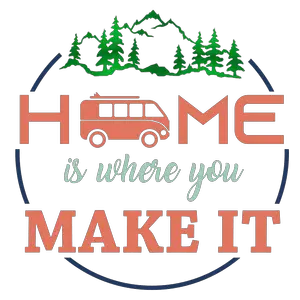Hey! This site is reader-supported and we earn commissions if you purchase products from retailers after clicking on a link from our site.
As someone that usually travels full-time in my 5th wheel RV, I can tell you that I am always concerned with keeping track of my fuel consumption and any ways that I can improve upon how much fuel I am burning. Having a good understanding of your RV’s operating costs and ways you can improve those costs will save you a lot of money when it comes time to top-off your tanks at the gas pumps.
In this article, we’ll look at what you can do while driving your RV to save fuel, and what you can do mechanically to reduce fuel consumption while RVing full or part-time. We’ll also look at ways you can save money at the pumps even if you are doing everything else correctly.
Drive responsibly
One of the best ways to save fuel while traveling is to slow down. Just because the speed limit on the stretch of highway you may be driving on is 70 miles per hour, do you need to be driving that fast? Does the cost of driving 70 mph for 3-4 hours to your next campsite justify the added cost? These are good questions and they’re especially important to understand if you are looking to improve the costs of your fuel expenses.
For example, if your fuel consumption is one gallon of fuel per 15 miles while driving at 57 miles per hour, or 1.85 gallons of fuel per 15 miles at 70 miles per hour, does the cost of arriving a few minutes earlier than if you drove slower make up that monetary difference? Absolutely not.
Look, if you’re a full-time RVer, slow down and get off the interstate highway system. Drive some two-lane highways through our land and enjoy Americana. You’ll find that driving at lower speeds off the interstate and on the roads that built America, you’ll see far more than cruising along an interstate highway looking at billboards for fast food restaurants and low-cost motels. However, the best part is that you’ll be saving money along the way by driving at lower speeds.
Another way to avoid excessive fuel consumption is drive at a steady pace. Don’t be the driver that races off when the light turns green, only to have me catch up to you at the next light waiting for it to turn green. Jack rabbit starts and quick stops not only burn more fuel, but they also add more stress to your engine, tires, and brakes.
Use your cruise control
Cruise control is a wonderful tool for keeping your gas mileage higher. In longer and flatter stretches of road it works very well maintaining a steady speed and it also helps to keep the driver more focused and relaxed. However, in mountainous areas, cruise control can add more strain to your RV.
For example, when you are ascending a mountain your RV will naturally begin to slow down because of its higher weight. When this occurs, the cruise control will take over and it will apply more fuel at greater amount than you would if you were driving the rig manually. It is also ineffective on the descent as it simply releases effectively putting your RV in a position of coasting meaning you will begin to gain speed and your brakes will need to be applied.
Not only will you burn more fuel when using your cruise control in this way, but you will also be adding extra stress to your transmission and the possibility of over-heating your brakes. In a future article, I’ll share some of my do’s and don’t when using your RV’s cruise control and we’ll look at ways to safely drive in the mountains while saving wear and tear on your rig as well as saving money at the same time.
Vehicle maintenance
Proper maintenance of your tow vehicle, trailer or motorhome is essential to saving money on fuel costs. Keeping your engine in tune, your oil changed in your motor and transmission and proper lubrication on your tow vehicle, trailer or motorhome is essential to good fuel mileage.
Sometimes simple factors such as old or worn spark plugs or cracked spark plugs wires can cause your engine to misfire and burn more fuel. A clogged catalytic converter will cause your RV to burn more fuel too.
Tires
One thing a lot of people overlook are their tires. Improperly inflated tires can and will cause excess fuel consumption. Additionally, over inflated or under inflated tires will wear unevenly and will need to be replaced more often and in some instances can lead to a blow out with catastrophic results so always be aware of your tire pressure and wear for safe travel. Read my full guide on RV tire pressure and other specs for a more in-depth look at RV tires and also consider picking up a tire pressure monitor system.
Weight
Weight plays a major role as to your RV’s fuel consumption. While you may not be able to reduce the gross vehicle weight of you RV, there are other measures you can take to reduce the amount of weight you are pulling or have onboard with you while you travel.
Consider what the weight of some of the fluids you carry every day when you travel.
- Diesel fuel, 6.6 pounds per gallon
- Gasoline, 6 pounds per gallon
- Propane, 4.5 pounds per gallon
- Water, 8.3 pounds per gallon
You can drastically reduce some of your weight by reducing some of the liquids you carry with you. For example, your rig holds 150 gallons of gasoline when completely full. That’s 900 pounds. That means that you can drive 750 miles at 12 miles per gallon before you need to fill up again. But what if you are only driving between campgrounds with 200 miles between them? In this case, you should consider filling your tank half full and eliminating 450 lbs. of excess weight.
If you are traveling between campgrounds or camping sites with full hook-ups, empty your black and gray water tanks between stops. There’s no reason to be carrying around 500-600 lbs. of sewage with you as you travel. Also, consider carrying around less freshwater in your tank to reduce its weight as well.
These are the most important things you can do to reduce fuel consumption and ones you should consider when traveling. In the meantime, safe travels to you and I hope to see you out on the road sometime.
Worried about costs on the road? Read our guide on how to make money on the road too.




